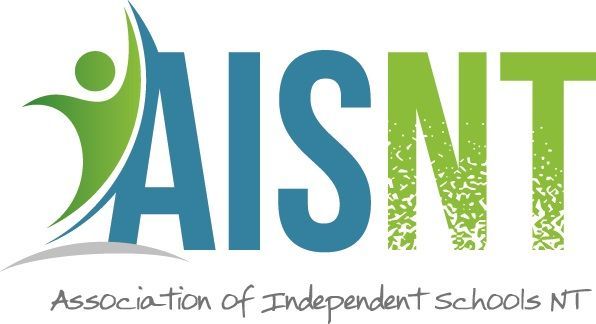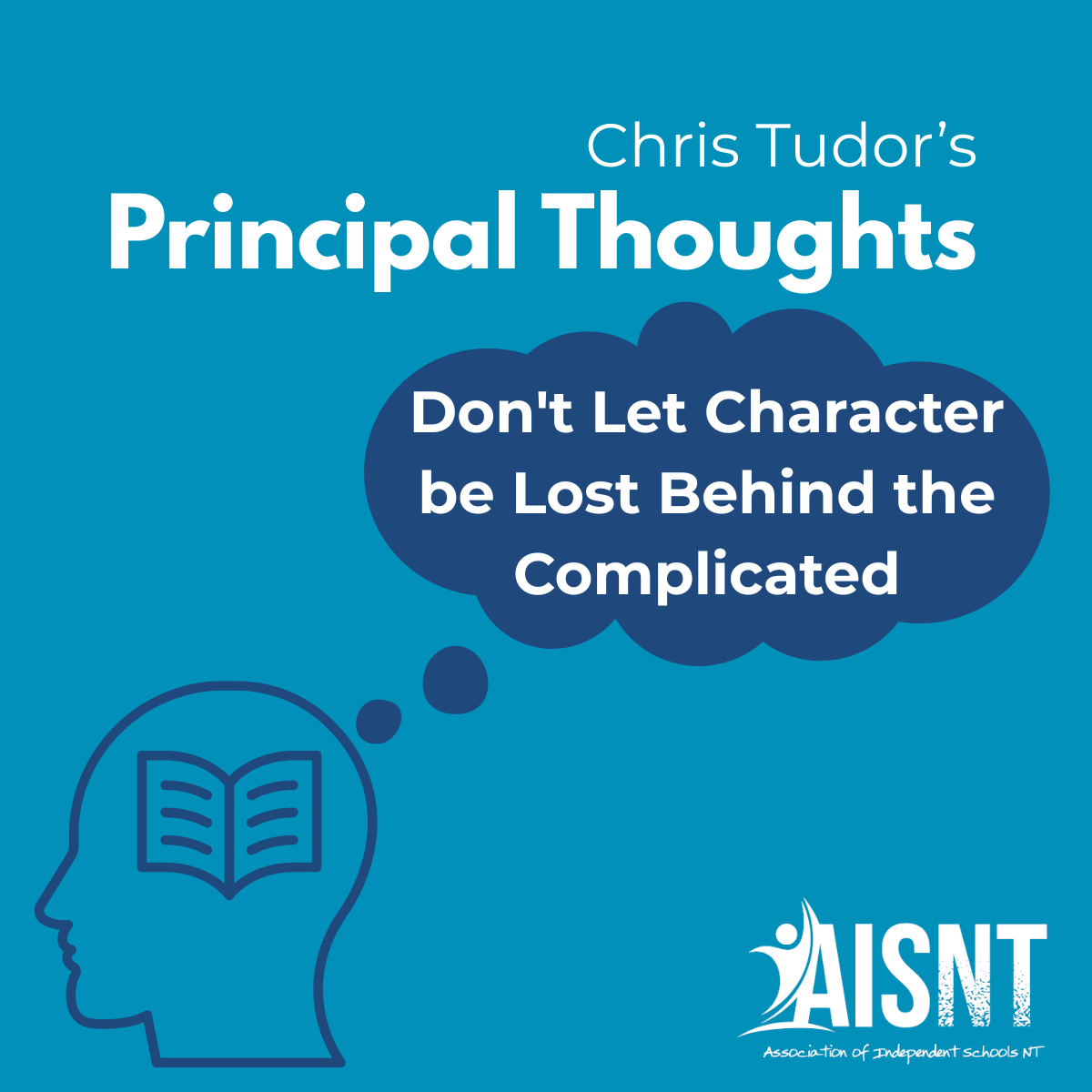Be Aware
I know Baden Powell, founder of the scouts established the motto “Be Prepared”. It is a good one to remember. I also think a highly valuable one for a Principal is “To Be Aware”. For a Principal to go around with their “metaphoric” eyes closed is a recipe for disaster. Mind you the same goes for their team of leaders who assist them and provide so much valuable support for them and of course the school. I also acknowledge that a Principal always has to be aware that there are difficult challenges, which are “gems” that come out of left field. As my time travelled on as a Principal I would say after dealing with an original drama or challenge: “well I’ve now dealt with every type of problem; there can be no more new ones lying in the bag of challenges.” Yep, stupid thought for there was always another one to wander along and that is even after 30+ years in the job - so don’t kid yourself! Whilst routine is always helpful, a Principal must be aware that it is going to be regularly interrupted - that is part of the nature of this very, very people centric job.
To Be Aware is to ensure that your senses and intuition are not “asleep at the wheel.” Personally I don’t know how you can tackle the challenge of being a Principal if you are not an intuitive person. In this age of surveys and expert opinion a Principal is regularly examining empirical data. “The data collected says this but I feel uneasy about what it is saying and feel that it is not presenting the story accurately.” And indeed perhaps it isn’t. We don’t often test the data- type of question, size of sample, bias in the sample etc. If a Principal has an uncertain feeling about the outcome of data collected and presented, they should not ignore this feeling and blindly accept that the data is accurate, simply because data is supposedly “king”. A Principal, who is aware, will pick up relevant feelings and explore them, think about them and consider what action should be taken.
Though there is always heaps of work that has to be done in the office it is dangerous for a Principal not to regularly relate to the members of the school community, including “getting out and testing the breeze”. Stephen Brown’s presentation at our recent get together, as always, was excellent. Leaders will vary enormously but good leaders will exhibit, amongst other characteristics, the following:
- Able to build relationships.
- Be interested in knowing people in the school community.
- Have an exciting vision and able to lead the school somewhere positive.
- Be approachable - essential!
- Be thoughtful, which links into having wisdom and making good decisions.
- Not dismissive.
- Have a good sense of humour.
- Great to be around and to relate to.
- Be able to celebrate people’s gifts and to move people forward.
- Be a good listener.
A Principal who is aware, will have these characteristic and if they don’t have them naturally will set about developing them. Of course the above is only a fraction of what Stephen presented but these have continued to leap off the notepad I used that day.
The Middle Leaders are the right arm of a Principal. Obviously a small school with a teaching Principal may not have any Middle Leaders and indeed they have a very special challenge. Larger schools do have a team of Middle Leaders who may be Heads of Departments, Senior Teachers, Deputy Principal, Director of Studies etc. It is essential that these people feel part of the Leadership Team and act accordingly. There really is little future for a rogue Middle Leader who goes off in their own direction which is not the direction of the school. Sure they may fit effectively into another school which does align with their passion.
Language is another area to consider. It is often not just incidental but is an indicator of attitude. If you have appointed a Middle Leader who uses aggressive, autocratic language, which is not your style, their position in the school will not be a happy one and will definitely project the wrong message. It doesn’t hurt to remind all staff about the importance of language and the power of its projection. Words, tone, message are all really influential. A teacher who shouts at students oppressively, when this is not the style accepted in the school, will do damage and therefore must stop!
The Principal must be the one that sets the Culture. It is damaging for a school to subscribe to a range of different Cultures. Certainly a staff member or student may present ideas to the Principal about the School’s Culture which the Principal may take on board However the Principal is the one that ensures the “school ship” is travelling on the right Cultural Course.
Oh, by the way, another one from Stephen Brown: the essential task of the Principal is to ensure that Role Clarity is fully understood. Sure a detailed job description can be given to a Middle Manager and the assumption may wrongly be made that the more detailed it is the better the position will be expedited. I wrote some long job descriptions and I’m sure that they were sometimes far too complicated. When this happens, people don’t necessarily come to see you about the complications, they just don’t do the task or do it in another way. It is so valuable to spend time with a leader making sure they have understood the role. There is then value in going though it with them from time to time to make sure they are on course. It is easy for this process to be done poorly or only when there is a crisis. Investment in the time to do this is really valuable. I always remember when I was appointed “senior master” at another school my job description was: “To be responsible for the discipline of the Boys!” I think this was a little short.
A significant phenomenon to be aware of is the “rhythm of the term”. My observation over the years is that a term definitely has a particular rhythm which may change through leadership, weather, crises etc. but does have a pattern. In a 10 week term pressure tends to reach maximum in about week 7 when teachers will be feeling weary and perhaps a “little short in the grain”. Students perhaps are also weary. I think it is always valuable to remind teachers of this just before week 7 and certainly during week 7.
I started teaching in the days of 3 x 13+ week terms and I can say with confidence that the 4 x 10 week terms have a far better rhythm and indeed less time is wasted. Some examples:
- The term 1 break is very welcome in Alice Springs because the heat can wear down both staff and students.
- It is often much easier to teach students on Monday morning than on Friday afternoon.
- Some teachers will say that windy days can cause erratic behaviour with some students.
There are many other examples of how rhythm will affect students. Understanding this and being sensitive to the school population will help in determining the particular rhythms for your school and it will help it to be a happy place.
Principals must build up a realistic understanding of their own tolerances. Principals can completely overcommit themselves because they want to achieve so much. However they must be mindful of when the pressure is becoming unreasonable. Pressure will bring with it more than sensible stress. A result of this can be: it being more difficult to make decisions, important things can be missed and uncertainty can trickle through the staff. Stephen suggests an approach to delegating by asking the following questions:
- What could you stop doing?
- What should you stop doing?
- What will you stop doing?
Stephen notes some reasons why Principal’s sometimes don’t delegate:
- Risk - will it be done correct?
- Expectation of others - they are also too busy
- Expertise - they don’t have the expertise but I do.
- Control - if I do it I will keep control.
Team Members are more likely to accept delegation if they feel safe in doing so and know they have the expertise to tackle the task or will be trained thoroughly to do it. People usually don’t like failing. Giving someone a task they can’t do will not work.
And so a key part of a Principal’s task is to be Acutely Aware. Their antennae must be up at all times to enable them to be aware of what is going on, to sense the climate and culture of the school, to feel the morale of staff and students and to know about the school’s reputation both within the school and also the local community. Their antennae must readily pick up anything that is wrong and doesn’t meet expectations. Then the Principal must be prepared to act in a timely way and not procrastinate. Nothing should be “swept under the carpet”.
The Principal must recognise that they are ultimately responsible for the culture of the school and guiding its strategic direction. In doing this they must own the responsibility of ensuring that tasks to be performed by the staff, particularly the Middle Leaders, are unequivocally clear. Finally, they must acknowledge that better outcomes can be achieved by working with the rhythm of the school as it makes its way through the year.
Personally I have visited wonderful schools where the Principal is Aware and I’ve visited unfortunate schools where the Principal is Unaware. I have also visited schools where the Principal is Aware but doesn’t know how to deal with the various challenges - a real pity!
SOME THOUGHTS WHICH MAY BE USEFUL.
Herbert Hoover
“Wisdom consists not so much in knowing what to do in the ultimate as in knowing what to do next”.
Success
If you want success from someone, give them a task that they able to do.
Communication
More often than not if you have to communicate something important it is best to do it verbally and in writing.
Problems
A problem shared is likely to be a problem halved.
Standards - General David Morrison
The standard (behaviour) you pass is the standard (behaviour) you accept.
Mahatma Gandhi
“An eye for an eye only ends up making the whole world blind”
Stephen Brown
“Remember empathy is not the same as sympathy”
Written by Chris Tudor,



